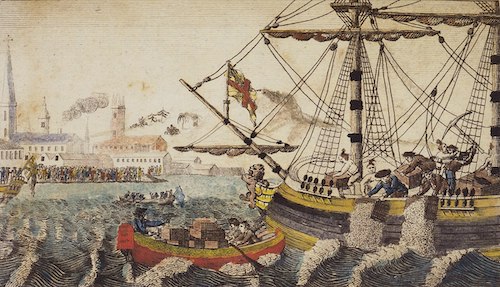The Boston Tea Party
Cannabis
August 17, 2023
The Boston Tea Party was a significant event in American history that took place on December 16, 1773, in Boston, Massachusetts, during the colonial period. It was a protest against the British government’s imposition of taxes on American colonists without giving them representation in the British Parliament. This event played a pivotal role in the lead-up to the American Revolutionary War.
Here’s a brief overview of the Boston Tea Party:
- Background: The British government, looking to raise revenue to pay off debts from the French and Indian War, passed various acts and taxes that directly impacted the American colonies. One of the most contentious was the Tea Act of 1773, which granted the British East India Company a monopoly on tea sales in the colonies and allowed them to sell tea directly to the colonies without paying certain taxes.
- Protest: Many colonists viewed the Tea Act as a way for the British government to assert its authority over the colonies and maintain its power to tax without representation. In response, groups of colonists organized protests. In Boston, a group of patriots, including Samuel Adams and the Sons of Liberty, orchestrated a plan to resist the Tea Act.
- The Event: On the night of December 16, 1773, a group of colonists, disguised as Native Americans to conceal their identities, boarded three British ships—the Dartmouth, Eleanor, and Beaver—that were carrying tea from the British East India Company. They proceeded to dump 342 chests of tea (worth a significant amount of money) into Boston Harbor as a protest against the unfair taxation and the British government’s actions.
- Aftermath: The British government responded to the Boston Tea Party with outrage and punitive measures. The British Parliament passed the Coercive Acts (also known as the Intolerable Acts) in 1774, which aimed to punish Boston and assert British control over the colonies. These acts further inflamed tensions between the colonists and the British authorities.
- Impact: The Boston Tea Party became a symbol of colonial resistance and a catalyst for more widespread anti-British sentiment. It inspired other acts of defiance and united colonists against what they perceived as British tyranny. The event marked a turning point in the lead-up to the American Revolutionary War, which ultimately led to the Thirteen Colonies declaring independence from Great Britain in 1776.
The Boston Tea Party remains a vivid example of civil disobedience and the power of collective action in the face of perceived injustice. It is an essential episode in American history that contributed to shaping the nation’s identity and fight for independence.
Shop Cannabis
